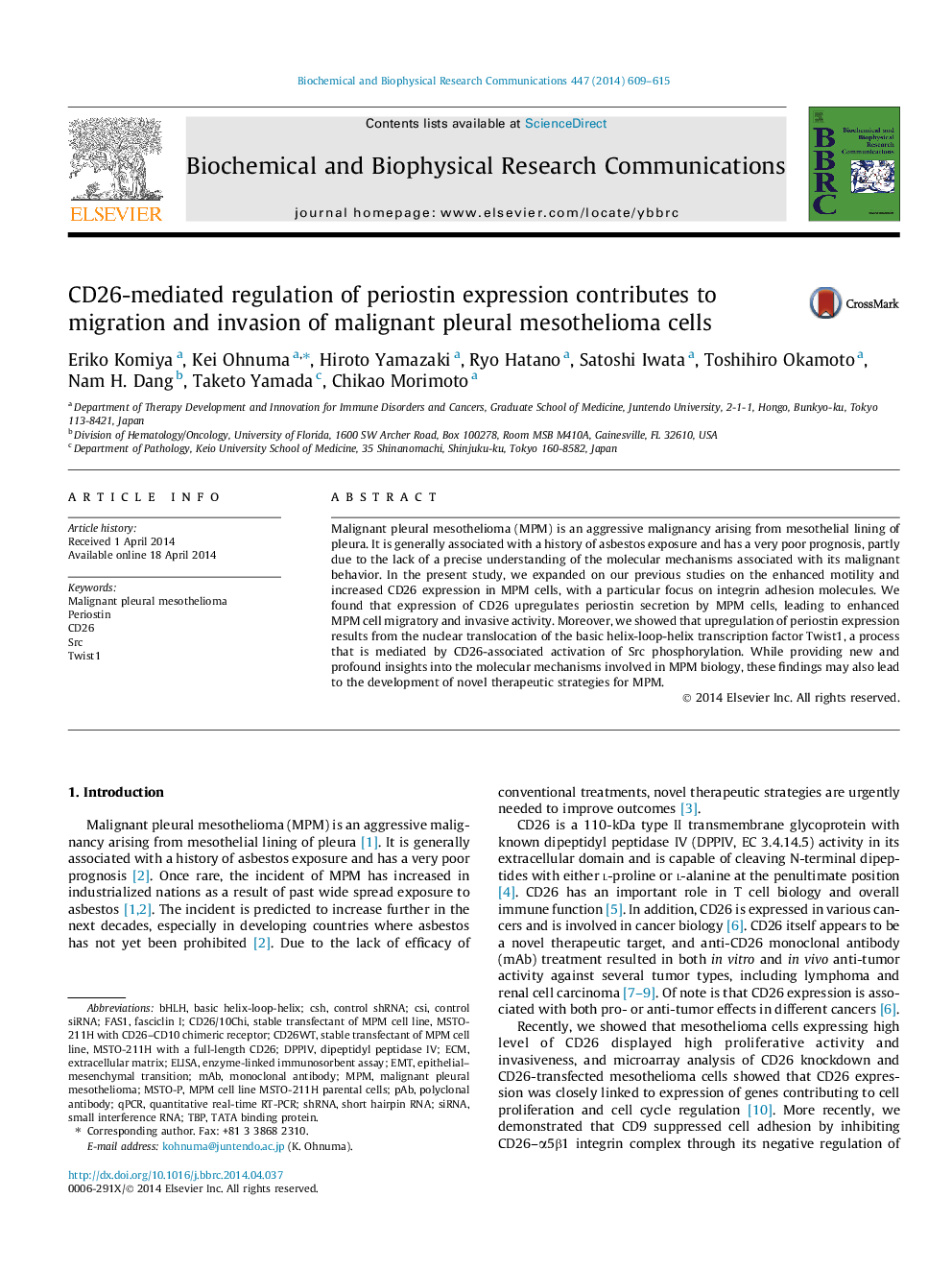| Article ID | Journal | Published Year | Pages | File Type |
|---|---|---|---|---|
| 10755014 | Biochemical and Biophysical Research Communications | 2014 | 7 Pages |
Abstract
Malignant pleural mesothelioma (MPM) is an aggressive malignancy arising from mesothelial lining of pleura. It is generally associated with a history of asbestos exposure and has a very poor prognosis, partly due to the lack of a precise understanding of the molecular mechanisms associated with its malignant behavior. In the present study, we expanded on our previous studies on the enhanced motility and increased CD26 expression in MPM cells, with a particular focus on integrin adhesion molecules. We found that expression of CD26 upregulates periostin secretion by MPM cells, leading to enhanced MPM cell migratory and invasive activity. Moreover, we showed that upregulation of periostin expression results from the nuclear translocation of the basic helix-loop-helix transcription factor Twist1, a process that is mediated by CD26-associated activation of Src phosphorylation. While providing new and profound insights into the molecular mechanisms involved in MPM biology, these findings may also lead to the development of novel therapeutic strategies for MPM.
Keywords
SRCFasciclin Icontrol siRNAFAS1CD26DPPIVMPMTwist1bHLHPABCSHECMCSIshRNATBPqPCRmAbshort hairpin RNAquantitative real-time RT-PCRsiRNAMonoclonal antibodyPolyclonal antibodybasic helix-loop-helixsmall interference RNAEnzyme-linked immunosorbent assayELISAEMTdipeptidyl peptidase IVExtracellular matrixMalignant pleural mesotheliomaTATA binding proteinPeriostinEpithelial–mesenchymal transition
Related Topics
Life Sciences
Biochemistry, Genetics and Molecular Biology
Biochemistry
Authors
Eriko Komiya, Kei Ohnuma, Hiroto Yamazaki, Ryo Hatano, Satoshi Iwata, Toshihiro Okamoto, Nam H. Dang, Taketo Yamada, Chikao Morimoto,
